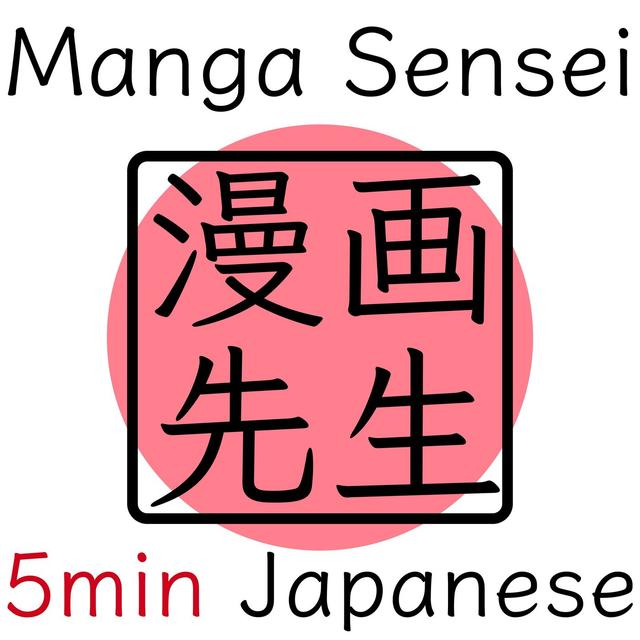Today we're talking about the various ways to say "I" and the number of ways you can use names. We go over when to use someone's first or last name, and how to refer to yourself, such as male and female forms of "I."
Dec 23, 2020•7 min
We talk about the word idah, which is the most basic version of the word "while." We go over different versions of "while" and "during," and the most simple versions of these words.
Dec 22, 2020•6 min
This is when you are referring to yourself in the 3rd person, such as when you say "I didn't think that 'I' could get into college." The second I is in the 3rd person.
Dec 21, 2020•6 min
This word happens when you put things in base 2. It's another version to express "while." It indicates that the action preceding the verb is taking place at the same time, or it's a simultaneous action expressed by the same clause.
Dec 18, 2020•6 min
Today I talk about exchange rates and where to place money symbols. I talk about 1, 10, 100, 1000, 10,000, and so forth.
Dec 17, 2020•6 min
Today we go over pronouns and name suffixes, such as Jibun, which is similar to myself or my. We learn how to refer to girls or boys and talk about the hierarchy of language.
Dec 16, 2020•7 min
I talk about the very middle symbol you find in many Japanese passage ways or entrances called aida.
Dec 15, 2020•6 min
This is not the uchi of your home, but the symbol looks like a person under a cage. This is quite similar to idah. We learn how to say "While I was learning Japanese in Japan." This is usually used with state or progressive actions.
Dec 14, 2020•6 min
I talk about particles in this episode. Atto is usually put with de, or uchi with ni.
Dec 10, 2020•5 min
“It’s on your right side.” I go over directions like North and South. Where to find the location of an item like a remote, or cell phone.
Dec 09, 2020•6 min
In this episode I talk about before something happens and after something happens. Both before you and after you, or in front of you and behind you.
Dec 08, 2020•6 min
Many things in Japanese are often temporal as they are physical, and we’re talking about how this pertains to directions. I go over various types of travel from one place to another.
Dec 07, 2020•6 min
Today I talk more about formality and how men and women speak differently. Men tend to be less polite when talking versus when women speak.
Dec 04, 2020•6 min
Kanji can often be a detriment if learned early, which is why I’ve chosen to talk about it later in this podcast. It’s better to get used to the language before trying to learn to understand and read Kanji.
Dec 03, 2020•6 min
I go more into the different forms of “But.” I talk about “Even though,” and various other words like But.
Dec 02, 2020•6 min
Today we’re diving a little deeper into how we use formality and why we use Des, Dah, Mas, and the plain form noun.
Dec 01, 2020•6 min
This is the last episode in the vector verb series. Today I go over some of the confusing things between the different vector verbs and make some clarifications.
Nov 20, 2020•6 min
Today we are talking about the last verb when it comes to the three major vector verbs, Morau. This one is the easiest version of the three.
Nov 19, 2020•6 min
I talk about the word Kureru, which goes along with the word Agheru. I talk about going from party B to party A and give some examples.
Nov 18, 2020•6 min
The first group of vector verbs where it comes from the speaker’s area of information to the listener’s area of information. I will talk about the word Agheru.
Nov 17, 2020•6 min
There are a number of different types of verbs in Japanese. Some are implied to have more than one meaning. Some are meant to communicate movement. We also have reciprocal verbs and stative verbs. Today and over the next 4 days I’ll be talking about these different types of verbs.
Nov 16, 2020•6 min
I explain how to talk in this form by improving and increasing the level of diction. The difference between talking to your family members, friends, and business associates.
Nov 13, 2020•6 min
This particle indicates equal distribution of quantity. Like when passing out a piece of candy, you give one piece of candy to each friend.
Nov 12, 2020•5 min
Ah ih oo eh oh. I briefly explain the 5 bases or vowels in Japanese and when these are used.
Nov 11, 2020•6 min
Ni usually needs to go with a verb and is used for an emphasis as to what happens “when.” I talk about what role Toki plays with the word Ni.
Nov 10, 2020•6 min
Today we are talking about time. There are various symbols and words to use for time, such as “Toki”, which I go over in this episode.
Nov 09, 2020•6 min
This is exclusively used with negative words. It’s like Bakari, but only used with words that have negative meanings.
Nov 06, 2020•6 min
Dakeh is used to say things like “Only.” Bakari is more like “Nothing but.” I give examples of the differences between the words.
Nov 05, 2020•6 min
In today's episode, John Sensei teaches us about demo. Demo means "however" or "but" in Japanese and has many different ways of saying it, depending on the formality and politeness of the situation.
Nov 03, 2020•6 min
I talk about nominalizers, or anything that changes a part of speech into a noun. I explain where No plays into this.
Nov 02, 2020•6 min
